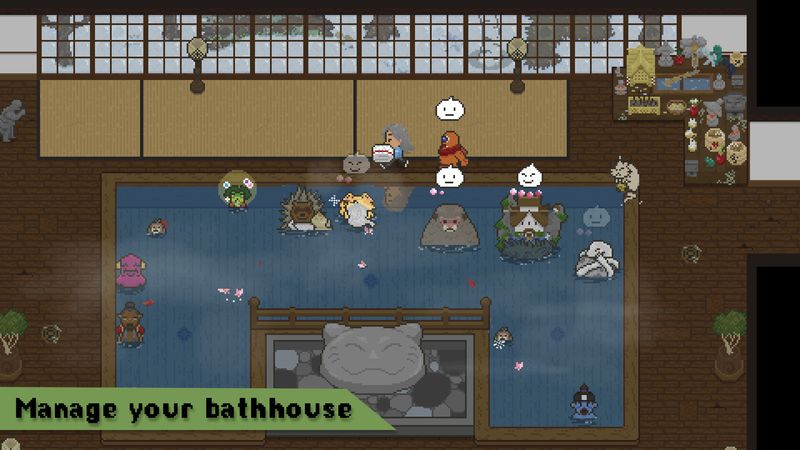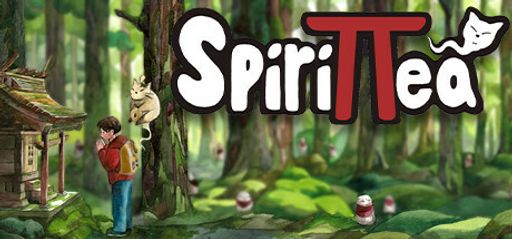Lately, I’ve been soaking in the cozy vibes of Spirittea, and wow—it’s been a real treat. This charming life sim from Cheesemaster Games, published by No More Robots, launched on Steam back on November 13, 2023. If you’re into low-stress games with quirky characters and relaxing tasks, this one might be your next digital comfort zone.
The premise? You play as a writer who moves to a peaceful mountain town, only to discover that spirits are restless and causing mischief. Your job: reopen a once-forgotten bathhouse, brew calming teas, and help these wayward spirits unwind and reconnect with their world. Think Stardew Valley meets Spirited Away, with a generous splash of supernatural slice-of-life.
And hey, if you love games where you slowly build routines, form oddball friendships, and unlock magical mysteries along the way, there’s a good chance Spirittea will speak to your soul—quietly, but sweetly.
Overall Impressions
Right off the bat, Spirittea welcomes you with a Spirited Away–inspired world full of friendly yokai, cute pixel art, and oddly endearing dialogue. It’s packed with character—from chatty locals to wide-eyed spirits—and the writing carries a quirky warmth that made me smile more than once.
I really enjoyed the relaxed pace. The game lets you explore at your own speed, which feels refreshing in a genre that often rushes you with time limits or daily deadlines. Short missions, like fixing a leaking bath pipe or tracking down a shy spirit, keep the routine feeling fresh. And each new tea recipe or bathhouse upgrade adds just enough excitement to keep you moving forward.
That said, a few things tripped me up. The game offers very little guidance—so little, in fact, that I spent over an hour trying to figure out how to harvest algae for the baths or how to earn enough to unlock a second duck (yes, the duck matters). The small inventory space made managing ingredients and tools feel cramped, and some of the minigames felt more like chores than charming rituals.
Even so, the quiet mystery behind the spirits and the world they once belonged to kept me curious. It’s not just about managing a bathhouse—it’s about healing what was broken. That emotional undercurrent sets Spirittea apart.
In the end, I’d say Spirittea sits comfortably next to cozy-life favorites like Stardew Valley, Potion Craft, or Bear and Breakfast. But while those games lean into farming, crafting, or running quirky B&Bs, Spirittea chooses a softer path—one that focuses on haunt-and-heal gameplay with a gentle spiritual twist.
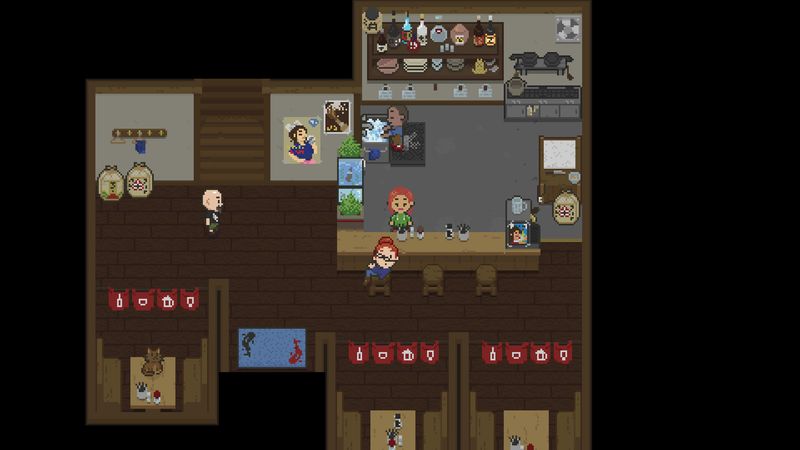
Gameplay Mechanics
I quickly sank into Spirittea’s core loop: gather ingredients, brew teas, soothe spirits, and upgrade the bathhouse. The gameplay flows like a daily routine, with short quests adding spice to each in-game day. I especially enjoyed scavenging mushrooms for Summer spirits and picking bright flowers for the Spring ones—these little seasonal touches gave each task purpose.
That said, the tutorial skimps on key info. I didn’t realize how to fill the fishpond or how to sort spirits by season until much later, and I only figured it out after trial and error. As someone who loves collecting, the small inventory space felt too limiting. I constantly shuffled items to make room. The UI also tripped me up at times—menus glitched, item labels vanished, and it wasn’t always clear where each object went.
Quick tip: if you’re using a keyboard, remap “Run” from Left Shift to R. My pinky nearly went on strike before I figured that out!
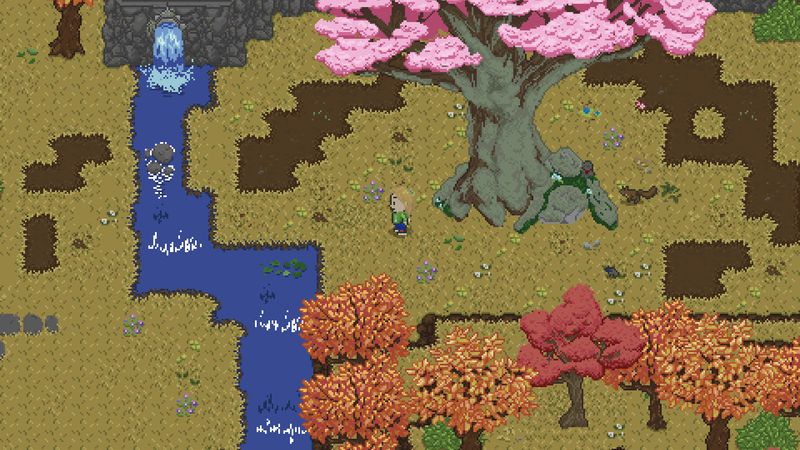
Story and Characters
The world of Spirittea oozes charm. Every yokai has a story and a favorite tea that helps them relax and open up. I adored the paddle-wielding duck who stirs the bathwater—one of many whimsical touches that give the game heart. As I served each spirit, I learned bits of their history through playful dialogue and clever visual cues.
Town NPCs add another layer of warmth. The mysterious old gardener, for example, drops cryptic hints that gently nudge you toward deeper lore without giving everything away. This style of storytelling respects your curiosity and makes every discovery feel earned.
Still, I wished a few characters had fuller arcs. Some spirits showed up, got their tea, and never returned—leaving me wanting more connection. Even so, every hike through the woods or new tea brewed brought something fresh—a secret path, a cheeky joke, or a moment of calm that made me smile.
Visuals and Graphics
Spirittea looks like a watercolor painting brought to life. Forest trails glow with pastel greens and warm sunlight, while the bathhouse itself feels like a rustic retreat tucked into the hills. Wooden floors, steam-filled pools, and flickering lanterns give the space a comforting vibe.
The spirit designs stand out—ranging from round, bouncy creatures to mischievous, shadowy figures with glowing eyes. I occasionally spotted bugs like floating mushrooms or objects slipping through furniture, but they never pulled me out of the experience. The expressive character portraits during dialogue add extra personality and help you feel closer to both humans and spirits.
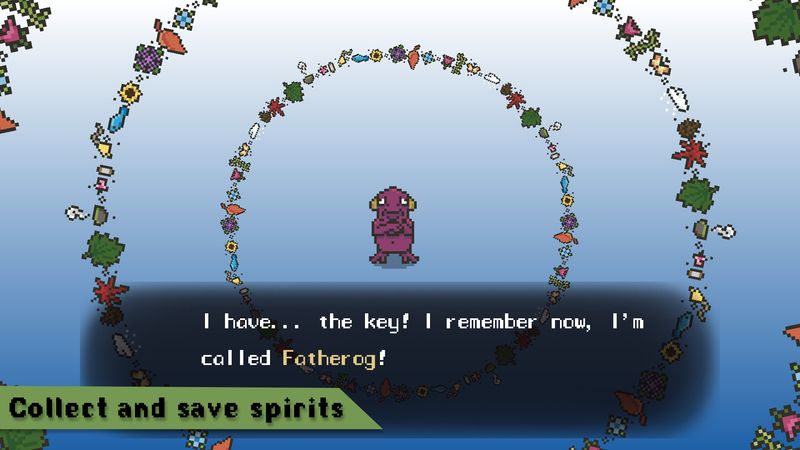
Sound and Music
The soundtrack gently carries you through each day, with airy flutes, soft strings, and the quiet hum of nature. The plucky flute tune that plays while you gather herbs became one of my favorite earworms. I also appreciated how every splash in the bathhouse felt tactile and satisfying.
Spirits make delightful sounds—tiny squeaks, sighs, and other cute vocal cues when they enjoy their tea. There’s no voice acting, which fits the peaceful mood. I did run into a few audio bugs while experimenting with the German language pack, but they were rare and fixed after a quick restart.
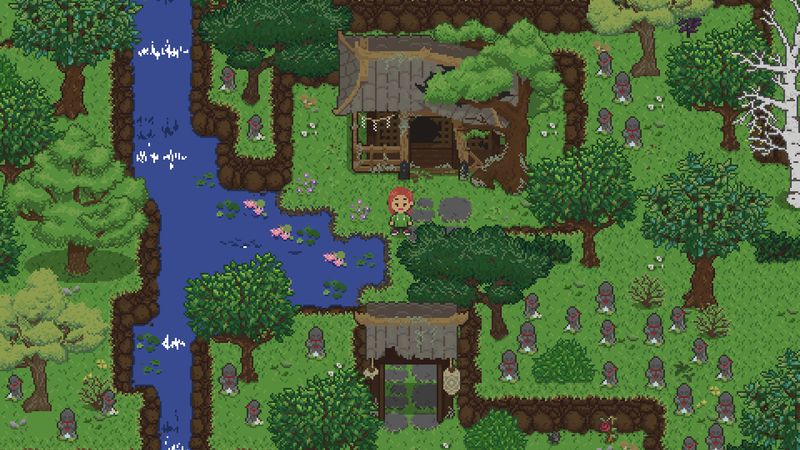
Difficulty and Replayability
Spirittea leans into a relaxed playstyle. The pacing starts slow—you’ll spend several in-game days collecting coins before your bathhouse turns a steady profit—but it feels intentional. That early grind teaches you the rhythm of life in this gentle town.
Missions never feel punishing. If you mess up a season-based tea order, just brew another and try again. The game doesn’t stress you with food meters or strict deadlines, which makes it ideal for players looking to unwind.
While there’s no obvious endgame, I could easily see myself replaying it to unlock new bathhouse upgrades or experiment with different spirit combinations. A New Game+ mode or seasonal event update would be a lovely future addition.
Rating: 4 out of 5 Stars
Spirittea delighted me with its peaceful pace, lovable spirit designs, and vibrant world. I knocked off a star for its lack of direction, cramped inventory, and a few UI and translation bugs. Still, it’s a gem for anyone who loves cozy sims with a hint of mystery.
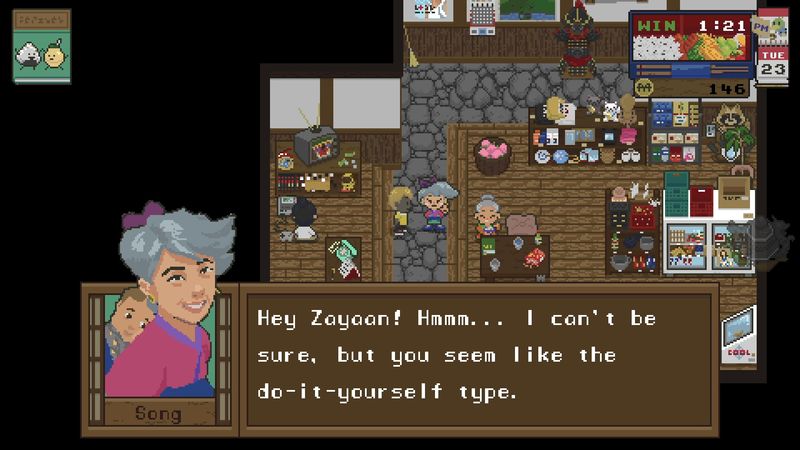
Trivia & Behind the Scenes
Developed by indie studio Cheesemaster Games, Spirittea came to life through open-source tools and a passion for folklore and community. The team, based in Europe, built the game to highlight slow-living, gentle exploration, and spiritual healing.
No More Robots—known for titles like Hypnospace Outlaw and Nowhere Prophet—published the game as part of their push to support unique, imaginative indies. Fun fact: on launch day, Spirittea dropped a patch that added customizable keybinds and better sorting options for seasonal spirits. These thoughtful changes reflect the team’s deep care for player feedback and accessibility.
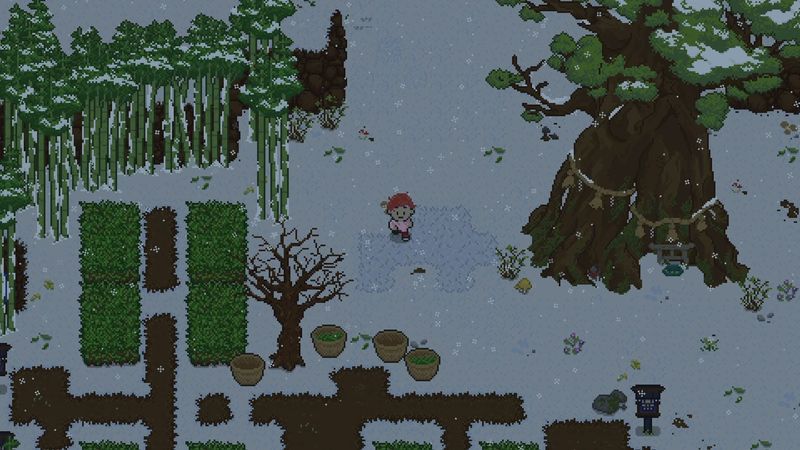
Final Thoughts
Spirittea feels like brewing a warm mug of tea for a friend who didn’t know they needed it. Sure, it has a few rough edges, but its heart beats steady. The game invites you to slow down, care for others (even if they’re ghosts), and enjoy the little things.
If you’re into slow-paced sims, charming creatures, and the quiet joy of discovery, this one’s worth your time. So go ahead—grab your favorite mug and settle in.
